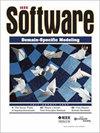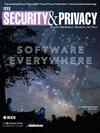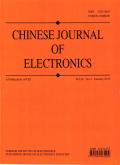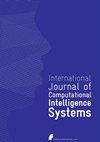期刊缩写:
IEEE Software
影响因子:
3
ISSN:
print: 0740-7459
研究领域:
工程技术-计算机:软件工程
h-index:
99
自引率:
6.10%
Gold OA文章占比:
12.33%
原创研究文献占比:
98.61%
SCI收录类型:
Science Citation Index Expanded (SCIE) || Scopus (CiteScore)
期刊介绍英文:
IEEE Software delivers reliable, useful, leading-edge software development information to keep engineers and managers abreast of rapid technology change. Its mission is to build the community of leading software practitioners. The authority on translating software theory into practice, this magazine positions itself between pure research and pure practice, transferring ideas, methods, and experiences among researchers and engineers. Peerreviewed articles and columns by seasoned practitioners illuminate all aspects of the industry, including process improvement, project management, development tools, software maintenance, Web applications and opportunities, testing, and usability. The magazine''s readers specify, design, document, test, maintain, purchase, engineer, sell, teach, research, and manage the production of software or systems that include software. IEEE Software welcomes articles describing how software is developed in specific companies, laboratories, and university environments as well as articles describing new tools, current trends, and past projects'' limitations and failures as well as successes. Sample topics include geographically distributed development; software architectures; program and system debugging and testing; the education of software professionals; requirements, design, development, testing, and management methodologies; performance measurement and evaluation; standards; program and system reliability, security, and verification; programming environments; languages and language-related issues; Web-based development; usability; and software-related social and legal issues.
CiteScore:
| CiteScore | SJR | SNIP | CiteScore排名 |
|---|---|---|---|
| 5.5 | 0.955 | 1.369 | 学科 排名 百分位 大类:Computer Science 小类:Software 159 / 407 61% |
发文信息
中科院SCI期刊分区
2025年3月20日发布
| 大类 | 小类 | TOP期刊 | 综述期刊 |
|---|---|---|---|
| 4区 计算机科学 | 4区 计算机:软件工程 COMPUTER SCIENCE, SOFTWARE ENGINEERING | 否 | 否 |
2023年12月发布
| 大类 | 小类 | TOP期刊 | 综述期刊 |
|---|---|---|---|
| 4区 计算机科学 |
4区
计算机:软件工程
COMPUTER SCIENCE, SOFTWARE ENGINEERING
|
否 | 否 |
WOS期刊分区
| 学科分类 |
|---|
Q2COMPUTER SCIENCE, SOFTWARE ENGINEERING |
历年影响因子
| 2015年 | 0.8200 |
|---|---|
| 2016年 | 2.1900 |
| 2017年 | 2.8790 |
| 2018年 | 2.9450 |
| 2019年 | 2.5890 |
| 2020年 | 2.9670 |
| 2021年 | 3.0000 |
| 2022年 | 3.3000 |
| 2023年 | 3.3000 |
| 2024年 | 3.0000 |
历年发表
| 2012年 | 603 |
|---|---|
| 2013年 | 486 |
| 2014年 | 290 |
| 2015年 | 178 |
| 2016年 | 190 |
| 2017年 | 195 |
| 2018年 | 172 |
| 2019年 | 174 |
| 2020年 | 185 |
| 2021年 | 226 |
| 2022年 | 182 |
投稿信息
出版周期:
Bimonthly
出版语言:
English
出版国家(地区):
UNITED STATES
审稿时长:
6-12 weeks
出版商:
IEEE Computer Society
编辑部地址:
IEEE COMPUTER SOC, 10662 LOS VAQUEROS CIRCLE, PO BOX 3014, LOS ALAMITOS, USA, CA, 90720-1314
IEEE Software - 最新文献
Providing Guidance to Software Practitioners: A Framework for Creating KPIs
Pub Date : 2024-09-10 DOI: 10.1109/ms.2024.3456446 Iffat Fatima, Markus Funke, Patricia LagoMLOps for Cyber-Physical Production Systems: Challenges and Solutions
Pub Date : 2024-08-14 DOI: 10.1109/ms.2024.3441101 Leonhard Faubel, Thomas Woudsma, Benjamin Kloepper, Holger Eichelberger, Fabian Buelow, Klaus Schmid, Amir Ghorbani Ghezeljehmeidan, Leila Methnani, Andreas Theodorou, Magnus BångGenerative Artificial Intelligence for Software Security Analysis: Fundamentals, Applications, and Challenges
Pub Date : 2024-08-13 DOI: 10.1109/ms.2024.3416036 Ao Ding, Gaolei Li, Xiaoyu Yi, Xi Lin, Jianhua Li, Chaofeng Zhang
免责声明:
本页显示期刊或杂志信息,仅供参考学习,不是任何期刊杂志官网,不涉及出版事务,特此申明。如需出版一切事务需要用户自己向出版商联系核实。若本页展示内容有任何问题,请联系我们,邮箱:info@booksci.cn,我们会认真核实处理。
本页显示期刊或杂志信息,仅供参考学习,不是任何期刊杂志官网,不涉及出版事务,特此申明。如需出版一切事务需要用户自己向出版商联系核实。若本页展示内容有任何问题,请联系我们,邮箱:info@booksci.cn,我们会认真核实处理。








